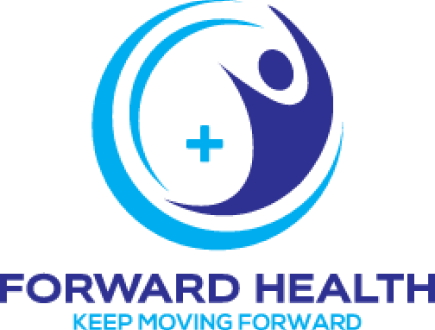Facing emotional challenges or navigating mental health struggles can feel overwhelming, but you’re not alone. If you’re searching for CBT therapy in Columbus, Ohio, finding the right support is a crucial step toward a healthier, more balanced life. At Forward Health Ohio, we specialize in offering compassionate, evidence-based care tailored to your unique needs.
Our center provides Cognitive Behavioral Therapy (CBT), a proven approach to help you address negative thought patterns and develop practical strategies for lasting change. Whether you’re dealing with anxiety, depression, or other challenges, our personalized programs are designed to guide you toward healing and growth.
Taking that first step toward help can be life-changing. At Forward Health Ohio, we’re here to support you every step of the way, offering tools and guidance to empower you on your journey to wellness. You deserve a brighter future, and it starts here.

What is CBT Therapy and How It Works
Cognitive Behavioral Therapy (CBT) is a widely-used, evidence-based approach that helps individuals identify and change negative thought patterns affecting their emotions and behaviors. At its core, CBT focuses on the relationship between thoughts, feelings, and actions, empowering you to take control of your mental well-being.
CBT therapy often involves structured sessions where you work with a therapist to challenge harmful beliefs and replace them with healthier, more constructive ones. Skills like coping mechanisms, stress management, and emotional regulation are developed to address factors contributing to mental health issues or addiction. This approach is particularly effective because it equips you with practical tools to apply in everyday situations, fostering long-term improvement.
In Columbus, Ohio, CBT therapy is integral to Forward Health’s outpatient programs, helping individuals overcome challenges unique to their circumstances. Whether addressing substance use, co-occurring disorders, or mental health conditions, CBT works by breaking down overwhelming problems into manageable steps.
How CBT Therapy Helps in Addiction Recovery
CBT therapy in Columbus, Ohio, addresses the psychological and behavioral aspects of addiction, making it an effective tool for recovery. It identifies triggers related to substance use, such as specific situations, emotions, or individuals, helping you recognize, manage, or avoid them.
CBT equips you with coping strategies to handle stress and cravings without turning to substances. These practical skills reinforce your ability to navigate daily challenges. Negative thought patterns associated with addiction are reframed during therapy, promoting healthier thinking and fostering a more positive outlook on recovery.
Emotional regulation is another key benefit of CBT. By managing feelings like anxiety or depression, which often co-occur with addiction, you’re better prepared for long-term sobriety. Problem-solving skills, developed through structured sessions, empower you to address life’s difficulties without relapse.
CBT therapy supports building a strong network of encouragement and accountability. This collaborative approach is especially beneficial in outpatient settings, such as Forward Health’s Intensive Outpatient Program (IOP), Partial Hospitalization Program (PHP), or Standard Outpatient Program (OP). These programs seamlessly integrate CBT, allowing you to apply newly acquired skills in real-world scenarios.
In Columbus, addiction recovery centers that incorporate CBT demonstrate notable outcomes. Research reveals CBT’s moderate to strong effectiveness in treating substance use disorders, including alcohol, cocaine, opioids, and cannabis, with benefits that often extend beyond one year. By combining evidence-based therapy like CBT with holistic care, facilities like Forward Health Ohio help you achieve and maintain sobriety.
CBT for Mental Health Conditions
CBT therapy in Columbus, Ohio, effectively addresses anxiety, depression, PTSD, bipolar disorder, OCD, and trauma. By focusing on the connection between thoughts, feelings, and behaviors, CBT helps you recognize and challenge negative thought patterns, promoting healthier emotional responses. Techniques like cognitive restructuring and behavioral activation are commonly used to develop better coping mechanisms. For example, cognitive restructuring aids in replacing anxiety-inducing thoughts with balanced ones, while behavioral activation encourages participation in fulfilling activities to combat depression.
At Forward Health Ohio, we integrate CBT within a holistic treatment approach, which is particularly beneficial for individuals dealing with co-occurring substance use and mental health disorders. PTSD treatment, for instance, incorporates exposure therapy techniques to help reduce trauma-related symptoms, and exposure and response prevention effectively manage OCD by reducing compulsive behavior.
We offer tailored session structures for outpatient and intensive care programs, ensuring CBT fits your unique challenges. The therapy promotes emotional regulation and stress management, allowing you to improve your overall mental health and quality of life.
Why CBT is Effective for Substance Use Disorders
Cognitive Behavioral Therapy (CBT) stands out as an evidence-based treatment for substance use disorders (SUDs), addressing the underlying thoughts and behaviors linked to addiction. Recognized by the National Institute on Drug Abuse (NIDA), CBT has proven effective in reducing substance use, preventing relapse, and supporting long-term recovery.
CBT works by targeting cognitive, emotional, and environmental risk factors influencing substance use. These structured therapy sessions help you identify triggering situations, reframe negative thought patterns, and develop practical coping mechanisms. For individuals in Columbus, Ohio, seeking CBT therapy as part of outpatient care, these skills contribute to both immediate and sustained recovery.
Scientifically Supported Benefits of CBT
- Abstinence Duration: Research highlights CBT’s role in extending periods of substance-free living, with benefits observed up to one year post-treatment.
- Versatility: Studies show that CBT effectively treats various substance addictions, including cocaine, cannabis, and opioids.
- Relapse Prevention: By enhancing behavioral self-control, CBT equips you with tools to manage cravings and avoid relapse triggers.
- Mental Health Integration: CBT addresses anxiety, depression, and other co-occurring disorders often linked to substance use, improving overall well-being.
Combining CBT with other therapies, such as motivational enhancement or contingency management, further enhances treatment outcomes. Facilities like Forward Health Ohio integrate these approaches within their Intensive Outpatient Program (IOP), Partial Hospitalization Program (PHP), and Standard Outpatient Program (OP) to offer you comprehensive care tailored to your needs.
CBT therapy in Columbus, Ohio, provides actionable strategies, empowering you to make meaningful, lasting changes while navigating your journey to recovery. If you’re managing challenges like SUDs or co-occurring conditions, CBT offers a clear path forward supported by a trusted, evidence-based approach.
Forward Health Ohio’s Approach to CBT Therapy
At Forward Health Ohio, we focus on providing personalized CBT Therapy in Columbus, Ohio, to address a variety of mental health and addiction challenges. Our care plans prioritize your unique needs, offering evidence-based techniques to support sustainable recovery. Each plan is developed by experienced professionals, many of whom have firsthand experience with recovery, ensuring a compassionate and understanding approach.
We integrate CBT with other therapies to maximize its effectiveness and deliver comprehensive care. Evidence-based options include:
- Motivational Interviewing (MI): Builds readiness for change by addressing hesitations and enhancing self-motivation.
- Trauma-Informed Therapy: Promotes healing by addressing underlying trauma in a safe, supportive manner.
- Group Therapy: Fosters connection and mutual support through shared experiences.
- Relapse Prevention Planning: Equips you with strategies to manage triggers and maintain progress.
Our approach also ties CBT directly into our structured treatment programs. Whether you’re in our Partial Hospitalization Program (PHP), Intensive Outpatient Program (IOP), or Standard Outpatient Program (OP), CBT is a foundational element aimed at improving thought patterns and behavioral responses.
By embracing CBT Therapy at Forward Health Ohio, you’ll gain skills to build healthier thought processes, enhance emotional regulation, and create a more manageable path to recovery. We’re committed to providing the tools you need to take meaningful steps forward.
100% Confidential | Cost Free | No Obligations
Levels of Care Offering CBT Therapy in Columbus Ohio
Cognitive Behavioral Therapy (CBT) is widely accessible across various care levels in Columbus, Ohio. We provide options such as Partial Hospitalization Programs (PHP), Intensive Outpatient Programs (IOP), and Standard Outpatient Programs (OP) to address diverse therapeutic needs.
Partial Hospitalization Program (PHP) – For clients needing structured near-daily therapy
Our PHP offers intensive CBT therapy several hours a day, five days a week. This level of care benefits individuals managing severe mental health symptoms or substance use challenges that require frequent, structured support. You’ll engage in both individual and group CBT sessions while residing at home, allowing you to balance treatment with personal responsibilities.
This program is ideal for addressing conditions like addiction, anxiety, PTSD, or dual diagnosis. Emphasizing thought and behavior modification, PHP helps clients identify triggers, develop coping strategies, and build emotionally stable routines.
Intensive Outpatient Program (IOP) – For flexible yet intensive therapy while living at home
Our IOP provides flexibility without compromising the depth of care. Typically meeting 3-5 times weekly for several hours each session, IOP ensures you receive focused CBT guidance while maintaining your daily obligations.
Through CBT, you’ll explore how negative thought patterns influence behaviors and emotions, learning effective tools to manage stress, cravings, and emotional regulation. This program suits those transitioning from higher-care levels or requiring moderate but consistent intervention for conditions like addiction or co-occurring mental health disorders.
Standard Outpatient Program (OP) – For ongoing support as clients transition to independent living
Our OP serves clients moving toward self-sufficiency by offering weekly CBT sessions customized to their recovery journey. This level of care emphasizes gradual integration into daily life while maintaining access to professional therapy.
You’ll refine previously learned coping mechanisms, solidify relapse prevention strategies, and address emerging challenges post-treatment. OP supports long-term mental well-being, helping clients sustain progress made during PHP or IOP levels of care.
CBT therapy in Columbus Ohio is accessible across all these care levels, ensuring you get the precise support needed at every stage.

Benefits of CBT Therapy with Forward Health Ohio
CBT therapy in Columbus, Ohio, through Forward Health, provides numerous advantages for individuals seeking recovery and mental health support. Our outpatient programs offer accessibility and flexibility while maintaining high-quality care.
- Stay Close to Family and Friends – Being an outpatient-focused provider, we enable you to remain connected to your local support system. This proximity can enhance your emotional stability and contribute to a more effective recovery process.
- Apply Skills Immediately – You practice skills learned in therapy, such as identifying negative thought patterns or coping strategies, in real-life situations daily. This real-time application reinforces behavior changes and fosters healthier habits.
- Flexible Scheduling – We understand the importance of maintaining your routine while seeking therapy. Our offerings, including PHP, IOP, and OP, provide treatment at convenient times, allowing you to balance work, school, or other responsibilities.
- Affordable Compared to Inpatient Care – Outpatient services are generally less costly than inpatient programs. By choosing our Columbus-based treatment options, you access effective, evidence-based care that fits within your budget while leveraging accepted major insurance and Ohio Medicaid plans.
CBT helps you address mental health challenges and substance use disorders by promoting self-awareness and practical problem-solving skills. Combined with the supportive, structured environment we offer at Forward Health Ohio, these benefits lead to long-term improvement and recovery.
How Opioid Dependence Develops
Opioid dependence results from the brain’s adaptation to consistent use of these substances. Opioids bind to receptors in the brain, triggering the release of large amounts of dopamine, which creates feelings of euphoria. Over time, the brain reduces its natural dopamine production, leading to tolerance. You may find yourself needing higher doses to achieve the same effects, which further entrenches the cycle of use.
Withdrawal symptoms often occur when opioids are reduced or stopped after prolonged use. These symptoms include anxiety, nausea, muscle pain, and cravings. The fear of these intense symptoms can make stopping feel overwhelming and reinforce continued use. Psychological triggers, like stress or environmental cues, also play a significant role in sustaining opioid use.
CBT therapy addresses these issues by helping you recognize and manage triggers, cravings, and maladaptive thought patterns. In Columbus, Ohio, we integrate CBT with other treatments, such as Medication-Assisted Treatment (MAT), to help break this cycle. This combination not only reduces the reinforcing effects of drug use but also promotes engagement in rewarding non-drug-related activities, supporting long-term recovery.
Combining CBT Therapy with Other Treatments at Forward Health
At Forward Health, we incorporate Cognitive Behavioral Therapy (CBT) with other evidence-based treatments to support comprehensive recovery. Combining approaches enhances overall effectiveness, particularly for individuals in Columbus, Ohio, facing challenges such as addiction, co-occurring mental health conditions, or trauma.
Integration with Medication-Assisted Treatment (MAT)
We pair CBT with Medication-Assisted Treatment for conditions like opioid dependence. While MAT addresses physical symptoms like withdrawal and cravings, CBT targets the psychological aspects, such as triggers and negative thinking patterns. This dual approach improves sustained recovery outcomes.
Support Groups and Relapse Prevention
Support groups complement CBT by providing a safe environment to share experiences and gain peer encouragement. To reinforce long-term sobriety, our relapse prevention strategies address behavioral risks, teaching practical skills to manage cravings and high-risk situations.
Vocational Training and Community Reintegration
CBT techniques are also integrated with vocational training to enhance focus, decision-making, and stress management in workplace settings. Community reintegration activities encourage rebuilding social connections, vital for a balanced and fulfilling recovery journey.
Our programs, including Partial Hospitalization Program (PHP), Intensive Outpatient Program (IOP), and Standard Outpatient Program (OP), are structured to provide these combined services. This layered approach offers flexibility and personalized care, allowing you to transition effectively into daily life while maintaining consistent therapeutic support.
Why Choose Forward Health Ohio for CBT Therapy in Columbus Ohio
Forward Health Ohio offers a distinctive approach to CBT therapy in Columbus, Ohio, tailored to the needs of individuals striving for improved mental health and recovery. Our team’s foundation in lived recovery experience ensures compassionate care, creating a safe environment for addressing challenges like anxiety, depression, PTSD, and addiction.
Unique Benefits of Our CBT Programs
- Experienced Staff with Personal Recovery Backgrounds: Many of our specialists have firsthand recovery experience, enhancing their understanding and ability to connect with you.
- Comprehensive Outpatient Options: Flexible programs, such as Partial Hospitalization (PHP), Intensive Outpatient (IOP), and Standard Outpatient (OP), provide varying levels of care to match your needs.
- Insurance and Medicaid Acceptance: We accept most major insurance plans, including Medicaid, making quality care accessible and affordable for more individuals.
- Telehealth Accessibility: For convenience, our virtual therapy options allow you to access CBT support from the comfort of your home.
- Holistic Treatment Integration: By combining CBT with therapies like DBT, group therapy, and relapse prevention planning, we address both mental health and co-occurring conditions comprehensively.
- Community and Vocational Support: As part of our holistic approach, we emphasize reintegration into community life and provide guidance on employment and financial skills.
By prioritizing long-term well-being, we foster resilience and equip you with practical tools to manage mental health and addiction challenges effectively.

Frequently Asked Questions
What is Cognitive Behavioral Therapy (CBT)?
Cognitive Behavioral Therapy (CBT) is an evidence-based psychotherapy that helps individuals identify and change negative thought patterns that affect emotions and behaviors. It focuses on the connection between thoughts, feelings, and actions, empowering individuals to develop healthier coping mechanisms and emotional responses.
How does CBT help with addiction recovery?
CBT addresses addiction by identifying triggers, managing cravings, and reframing negative thought patterns. It helps individuals develop coping strategies, stress-management skills, and emotional regulation techniques, reducing the risk of relapse and supporting long-term sobriety.
What mental health conditions can CBT treat?
CBT is effective for conditions like anxiety, depression, PTSD, bipolar disorder, OCD, and trauma. It helps individuals challenge negative thoughts, promote positive behavior changes, and improve overall emotional well-being.
How does CBT address co-occurring disorders?
CBT helps individuals manage both mental health and substance use disorders by targeting negative thought patterns and behaviors. At Forward Health Ohio, tailored sessions focus on emotional regulation and stress management to ensure holistic recovery.
What therapy programs does Forward Health Ohio offer?
Forward Health Ohio offers Partial Hospitalization Programs (PHP), Intensive Outpatient Programs (IOP), and Standard Outpatient Programs (OP). These flexible care options cater to varying needs, ensuring personalized support throughout recovery.
Can CBT help with opioid dependence?
Yes, CBT helps individuals manage opioid dependence by addressing triggers, cravings, and harmful thought patterns. Combined with Medication-Assisted Treatment (MAT), it supports long-term recovery by reducing reliance on opioids and promoting healthier behaviors.
What makes Forward Health Ohio unique for CBT therapy?
Forward Health Ohio offers tailored care plans, a compassionate team with firsthand recovery experience, and integration with other treatments like Trauma-Informed Therapy and MAT. Their outpatient programs provide flexible, accessible, and comprehensive mental health support.
Does Forward Health Ohio accept Medicaid and insurance?
Yes, Forward Health Ohio accepts Medicaid and most insurance plans, ensuring accessible care for individuals seeking support for mental health and addiction challenges.
Can I access CBT therapy through telehealth at Forward Health Ohio?
Yes, Forward Health Ohio provides telehealth options, allowing clients to receive high-quality therapy remotely, offering convenience and accessibility for those unable to attend in-person sessions.
How does CBT improve long-term recovery?
CBT promotes self-awareness, healthier thinking patterns, and practical problem-solving skills. By addressing negative behaviors and reinforcing positive changes, it supports lasting recovery and improves overall quality of life.






